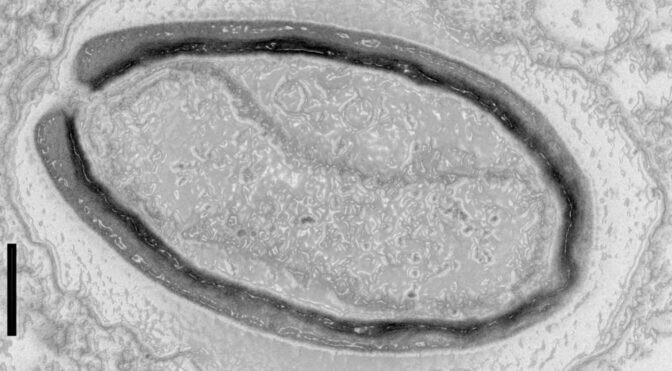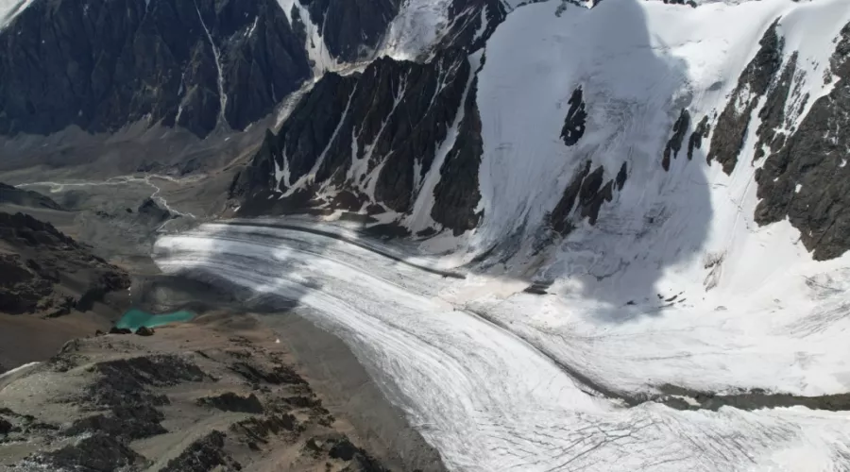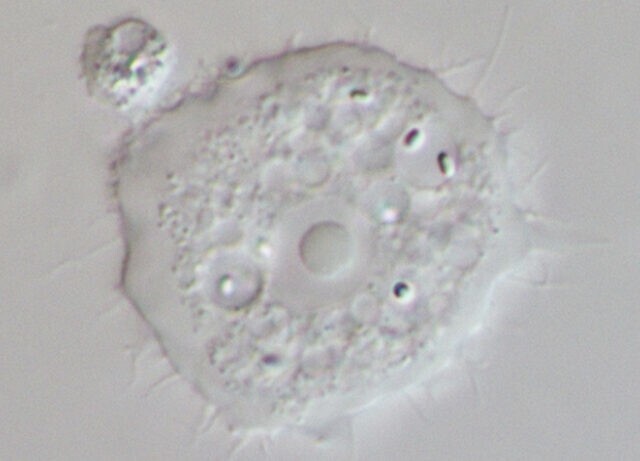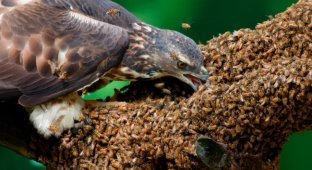French scientists have revived a 50,000-year-old virus that "slept" in the permafrost (3 photos)
Glaciers are melting, causing virologists and biologists to sound the alarm because of ancient viruses. 
Scientists from time immemorial have been digging up the remains of ancient plants and animals. Jean-Michel Clavery from medical school University of Aix-Marseille has spent the last 20 years searching for the surviving ancient viruses in deep deposits of permafrost. His team recently revived a virus that had been dormant for almost 50,000 years. It may sound like the premise for a post-apocalyptic movie, but Clavery thinks it's in our best interest to know what's lurking there. 
This is not the first time a French scientist has awakened an ancient vipyc. He and his team managed to do this for the first time in 2014 when they isolated a 30,000-year-old virus from permafrost and infected cultured cells. For security purposes, Claveri focused on vipycax, which infect only unicellular amoebae. In 2015 the team did the same with another strain of the virus. In the very last The Claverie team's publications detail the 13 newly identified viruses, including the oldest ever revived.
Most "awakened" viruses are extremely large in size. viral standards, some reach two micrometers in length (such same size range as E. coli). They belong to those families like Pandoravirus (like the one above), Megavirus and Pacmanvirus. The oldest organism is Pandoravirus yedoma, which lay in permafrost for 48,500 years, according to radiocarbon dating of the surrounding soil. Scientists have reported that these viruses infected larger amoeba cells, which the team provided to test whether ancient organisms are viable. IN study describes how thawed viruses are safely invaded cultured amoeba cells and in a few hours turned them into factories for the production of more ancient viruses. 
The researchers used Acanthamoeba cells like this one to incubate viruses.
Claverie told CNN that he worries about people consider his research on ancient viruses as a curiosity, but this very important. This study is focused on viruses that infect only amoebas, not plants or animals, but there are undoubtedly viruses, preserved in permafrost, who would like to settle in animal cells—perhaps even humans. Claverie samples taken from Siberian ice cores, many of which were collected at a depth of more than 16 meters. However, permafrost is much less resilient to change climate.
As the Earth warms, we lose eternal permafrost in higher latitudes. It is quite likely that viruses preserved in permafrost can become active again without help scientists. A new study shows us that 50,000 people years old, still viable. Perhaps even older viruses can wake up when the permafrost melts, which may have unknown consequences for an ecosystem that has not seen these organisms in thousands years. So let's add this to the list of potentially catastrophic the consequences of climate change.





















